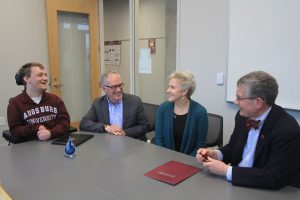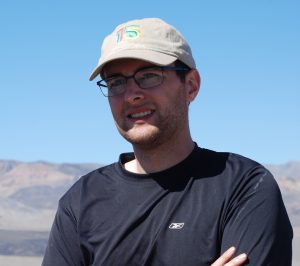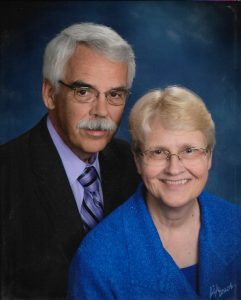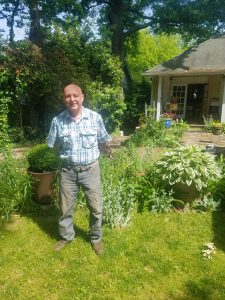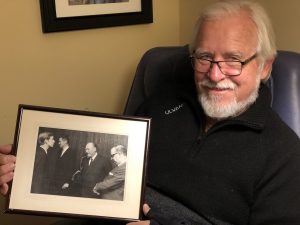
Many who benefit from an Augsburg education say thanks by designating a gift to the University in their estate plan. But only a few pepper their lives with intriguing thank-you stories along the way. Lars Sandven ’69 is one of those.
The son of Norwegian farmers, Sandven was completing his compulsory service with the Norwegian air force in 1965, stationed north of the Arctic Circle at a base that also served American soldiers training in the frigid elements. At night he taught English, capitalizing on the year he had spent as an exchange student in Pennsylvania, for extra pay. During the day he worked at a desk job, “shoveling paper.” One of his duties was to file government newspapers, each issue a four-page compilation of name changes, divorce decrees, and other essential ephemera.
“I was supposed to just put them away, but I had plenty of time. So I read them. I happened to see an ad from the American-Scandinavian Foundation about a new Augsburg scholarship in honor of Norway’s Crown Prince Harald V. I was fluent in English, so I applied,” Sandven recalls. His application was accepted; the scholarship was his.
“It was so funny—they called from the palace! It was a big deal. I have an image of the lieutenant, my boss, standing at attention while he talked to the royals in Oslo,” he says. Returning home on leave, he discovered that they had first contacted his small town in fjord country. “It sounded like a fairy tale. The ladies at the switchboard were all abuzz. It was very humorous.”
Sandven knew little about Augsburg, of course, and having just lost his father to a farm accident, lacked travel funds. When the ASF “asked sweetly” whether he might need some help, he accepted. Passage on a boat shipping out of Bergen was negotiated, as long as he was willing to join the crew, loading fruit, aluminum bars, and other cargo as necessary. After navigating the Atlantic and the St. Lawrence Seaway, he disembarked in Montreal and took a Greyhound bus to Detroit and then St. Paul.
“I got there in the morning, very disoriented. I never got a sense of direction in the Twin Cities. It was so flat—no Eiffel Tower, nothing,” Sandven, then 21, remembers with a chuckle. He moved into freshman housing, where he secreted Wonder Bread and margarine (it melted) in his metal locker to help stretch his limited finances. To supplement his one-year scholarship, he taught Norwegian as an “instructional assistant” while the Augsburg professor was on sabbatical, worked summers at the Concordia Language Camp, dug ditches, painted walls, translated for pastors, and donned a Beefeater costume to wait tables at the Sheraton Ritz Hotel’s Cheshire Cheese Olde English Beefe House. He was paid $100 to join three other foreign students and two American drivers on a six-week, cross-country, Ambassadors for Friendship road trip. Organized by Macalester College and underwritten by American Motors, the experience was “eye-opening,” memorable and meaningful, with homestays in locations ranging from Salt Lake City and New Orleans to Las Vegas (where he got lost) and Nogales (where he slipped across the border for a beer). He also worked in the kitchen at the Minikhada Country Club; his colleagues there served him and his mother a fancy dinner when she visited Minnesota. Thanks were in order on all fronts.
After finishing his Spanish degree in three years, Sandven (and his skis) shipped home to the University of Bergen, where he met his California-born wife, Ann. It was during a celebrity-studded World Cup event, at an intimate party of about 20, that he got the opportunity to thank Crown Prince Harald directly for his scholarship. “We came full circle. After I got home, the staff sent me a Christmas card from the palace with a picture of the royal family and a note that said, ‘come and see us while you are in Oslo.’ I was feeling very ‘close’ to royalty for a while,” he jokes. (He had met and been photographed with Norway’s King Olav V during the king’s 1968 Augsburg visit.)
Following a rather common path of first-generation farm kids becoming teachers, says Sandven, he taught elementary school in Oslo. He also worked in television before he and Ann headed back to America, two small sons in tow. In 1982, the growing family settled in Boise, Idaho, where he worked as an educator and school counselor before retiring. His sons graduated from Stanford and his daughter from Lawrence University in Appleton, Wisconsin; all have thriving careers, and two of them have settled their families in his home country.
With their planned gift, Sandven sums up his gratitude and expresses appreciation for his philanthropically inclined wife. “It’s a thank-you to Augsburg, and a way to help others who were like me,” he says. “It’s wonderful to be able to share our blessings, both of us.”

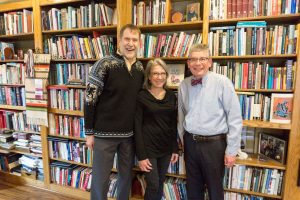 The Agre legacy at Augsburg University is well-established. The late Courtland L. Agre accepted the position of chairperson in the chemistry department in 1959 and became a beloved professor, inspiring hundreds of admiring students to stake out careers in science. His lessons were not lost on his three sons, all of whom majored in chemistry: Nobel prize winner Peter Agre ’70, Bloomberg Distinguished Professor at the Johns Hopkins Bloomberg School of Public Health and Johns Hopkins School of Medicine, and director of the Johns Hopkins Malaria Research Institute; Jim Agre ’72, professor of rehabilitation medicine at the University of Minnesota; and Mark Agre ’81, a rehabilitation medicine specialist in St. Paul. (Their sister, Annetta Agre ’69, majored in elementary education and taught in the Minneapolis school system.)
The Agre legacy at Augsburg University is well-established. The late Courtland L. Agre accepted the position of chairperson in the chemistry department in 1959 and became a beloved professor, inspiring hundreds of admiring students to stake out careers in science. His lessons were not lost on his three sons, all of whom majored in chemistry: Nobel prize winner Peter Agre ’70, Bloomberg Distinguished Professor at the Johns Hopkins Bloomberg School of Public Health and Johns Hopkins School of Medicine, and director of the Johns Hopkins Malaria Research Institute; Jim Agre ’72, professor of rehabilitation medicine at the University of Minnesota; and Mark Agre ’81, a rehabilitation medicine specialist in St. Paul. (Their sister, Annetta Agre ’69, majored in elementary education and taught in the Minneapolis school system.)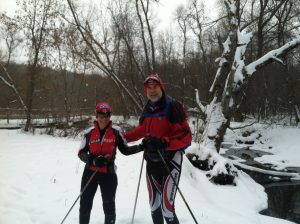 Jim plans to retire this spring but has no plans to slow down. He takes Swedish classes and returns often to Sweden and Norway to visit family and participate in cross-country ski competitions; he and his wife are both avid skiers. At home, he takes part in Loppet Nordic Racing at Theodore Wirth Park.
Jim plans to retire this spring but has no plans to slow down. He takes Swedish classes and returns often to Sweden and Norway to visit family and participate in cross-country ski competitions; he and his wife are both avid skiers. At home, he takes part in Loppet Nordic Racing at Theodore Wirth Park.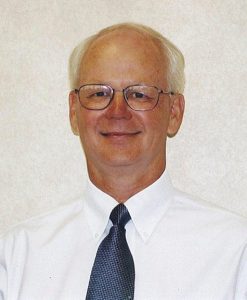 A serial entrepreneur who relishes new challenges and opportunities to share his leadership expertise, John Fahlberg ’68 has not forgotten what it is like to work hard, play hard, and struggle to afford a college education. He and his wife have designated $375,000 as a planned gift to establish the John A. and Martha C. Fahlberg Scholarship, which will support students who have financial need and enjoy participating in extracurricular activities.
A serial entrepreneur who relishes new challenges and opportunities to share his leadership expertise, John Fahlberg ’68 has not forgotten what it is like to work hard, play hard, and struggle to afford a college education. He and his wife have designated $375,000 as a planned gift to establish the John A. and Martha C. Fahlberg Scholarship, which will support students who have financial need and enjoy participating in extracurricular activities.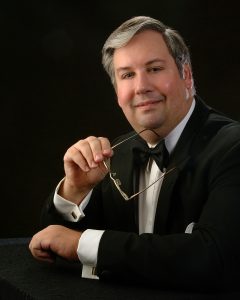 With his planned gift to Augsburg University’s music department, Duane Esterly ’75 has come full circle in his musical life, helping to ensure that future students who share his passion can pursue similar dreams.
With his planned gift to Augsburg University’s music department, Duane Esterly ’75 has come full circle in his musical life, helping to ensure that future students who share his passion can pursue similar dreams.